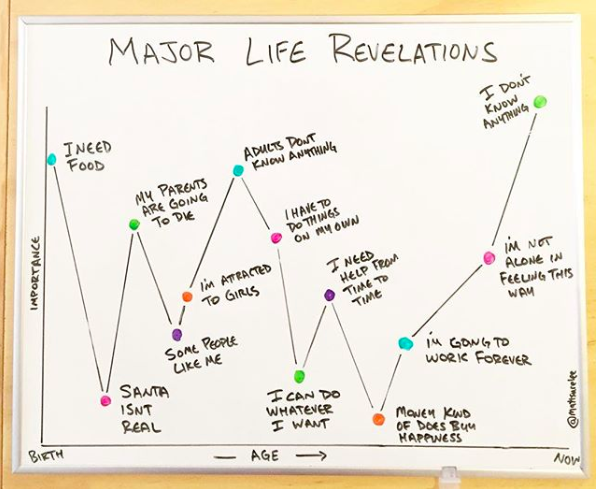VICE Staff
Welcome to Coping, Episode Fourteen.
Advertisement
Q: How do you cope with fear of death?
- Journaling: Reflect on a question or thought with five or ten minutes of writing (or more). Journaling will give you the space to reflect on your fear. You also might consider challenging yourself to counter the darkness by writing about things you’re grateful for.
- Grounding: This is a mindfulness technique that helps you get into the moment and can distract from distressing thoughts. Listen to a song intently and notice the lyrics or bass line, pet an animal, hold an ice cube and watch it melt. Focus on your senses and your surroundings, giving yourself room to accept your thoughts without judgement.
Advertisement
More stories:
- Most of our phobias are driven by the fear of death
- There are health benefits in contemplating the afterlife
- People obsessed with wellness can't accept that we're all going to die
- Meditating on your death could make you happier
Today's comic, by Matt Shirley:
